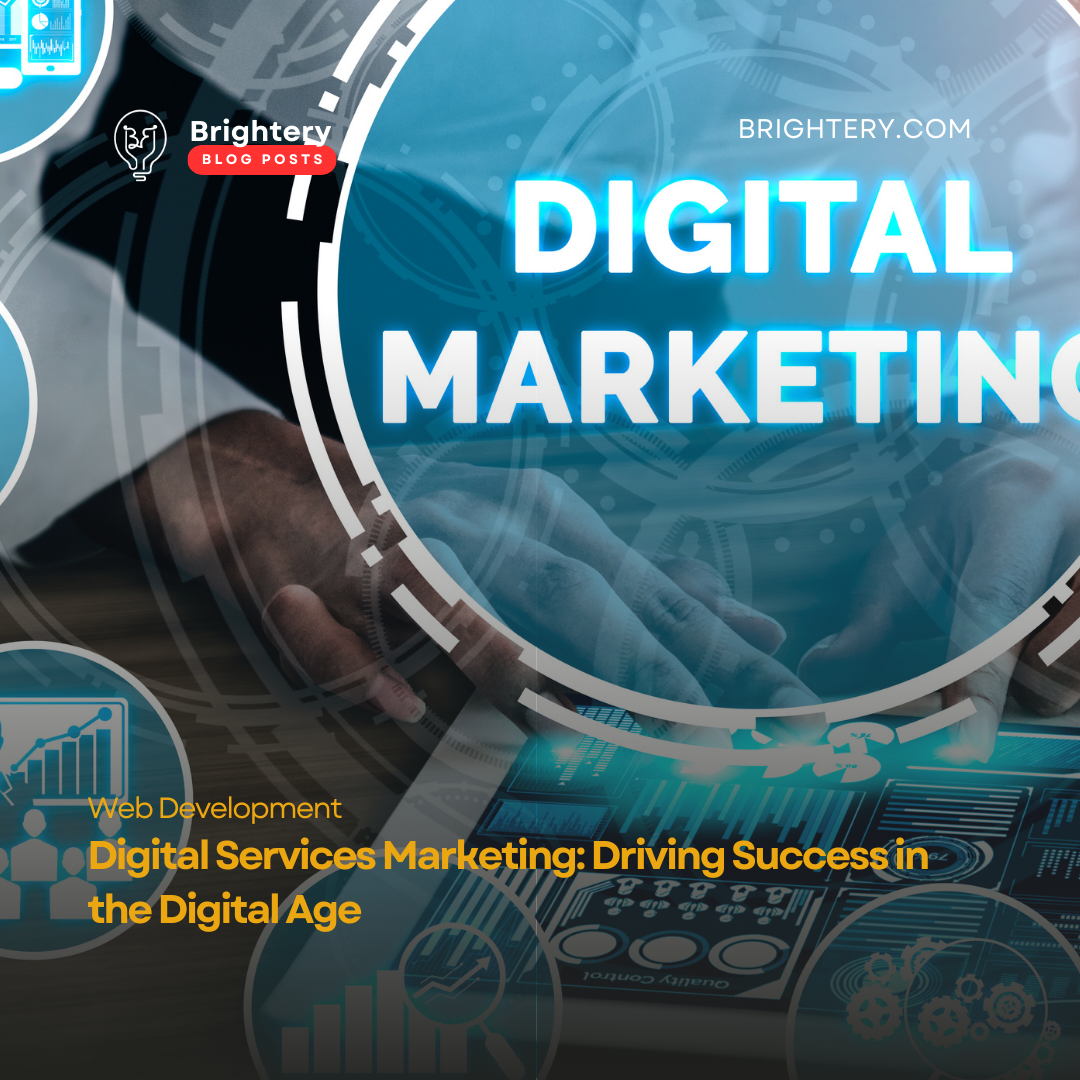The digital revolution has transformed how businesses connect with their customers. Digital services marketing plays a crucial role in promoting services online, allowing businesses to thrive in an increasingly connected world.

Definition of Digital Services Marketing
Digital services marketing involves using digital channels and strategies to promote services instead of physical products. It’s about showcasing value, building relationships, and driving conversions through platforms like social media, email, and search engines.
Importance of Digital Services in Today’s Economy
From education to healthcare, every industry has embraced digital services. Marketing these services effectively ensures businesses reach their target audience and maintain a competitive edge.
Key Components of Digital Services Marketing
Digital Advertising
Pay-per-click (PPC) campaigns, display ads, and remarketing strategies help services gain visibility.
Search Engine Optimization (SEO)
Optimizing websites to rank higher in search results ensures long-term visibility and traffic.
Social Media Marketing (SMM)
Platforms like Facebook, Instagram, and LinkedIn allow businesses to engage with their audience and showcase expertise.
Content Marketing
Providing valuable content, such as blogs, videos, and guides, builds trust and positions businesses as industry leaders.
Email Marketing
A cost-effective way to nurture leads and keep customers informed about your services.
Analytics and Data-Driven Strategies
Using tools to measure performance ensures campaigns are continuously optimized for better results.
The Ultimate Guide to Choosing a Magento Development Company
Why Digital Services Marketing is Crucial
Growing Online Presence
With more consumers turning to the internet for solutions, having a robust online presence is essential.
Enhanced Customer Engagement
Digital channels enable two-way communication, fostering stronger relationships with customers.
Cost-Effective Marketing
Compared to traditional methods, digital marketing offers better ROI, especially for small businesses.
Developing a Successful Digital Marketing Strategy
Understanding Your Target Audience
Know your audience’s needs, preferences, and pain points to create effective campaigns.
Setting Clear Objectives
Define measurable goals, such as increasing website traffic or improving lead conversions.
Choosing the Right Digital Channels
Select platforms that align with your audience’s habits and your services’ nature.
Allocating Budget Effectively
Prioritize spending on channels that deliver the best results for your business.
Best Practices in Digital Services Marketing
Personalization and Customer-Centric Approaches
Personalized emails, ads, and recommendations enhance user satisfaction and loyalty.
Mobile Optimization
With mobile traffic dominating, ensuring your website and campaigns are mobile-friendly is non-negotiable.
Leveraging Video Content
Videos are engaging and often lead to higher conversions, especially for service-based businesses.
A/B Testing for Campaign Optimization
Experiment with different elements of your campaigns to identify what works best.
Emerging Trends in Digital Services Marketing
AI and Machine Learning in Marketing
AI tools can predict trends, automate tasks, and provide personalized experiences.
Voice Search Optimization
Optimizing for voice queries ensures your services are discoverable by users who prefer hands-free searches.
Sustainability in Marketing Campaigns
Customers increasingly prefer businesses that adopt eco-friendly practices and highlight them in their campaigns.
Challenges in Digital Services Marketing
Adapting to Rapid Technological Changes
Keeping up with the latest tools and platforms requires continuous learning.
Balancing Data Privacy with Personalization
Striking a balance between personalized marketing and respecting user privacy is essential.
Measuring ROI Effectively
Tracking the impact of digital campaigns can be challenging without the right tools and metrics.
Tools and Platforms for Digital Services Marketing
Marketing Automation Tools
Platforms like HubSpot and Marketo streamline campaign management.
Analytics Platforms
Google Analytics and similar tools help track performance and refine strategies.
Social Media Management Tools
Hootsuite and Buffer simplify scheduling and managing social media campaigns.
Case Studies of Successful Digital Services Marketing Campaigns
Examples of Industry Leaders
Companies like Netflix and Uber have excelled in marketing their digital services by leveraging personalization and analytics.
Lessons Learned from Campaigns
Focus on understanding your audience, utilizing data, and maintaining flexibility to adapt to changing trends.
Conclusion
Digital services marketing is essential for businesses looking to grow and succeed in the digital era. By embracing innovative strategies, leveraging emerging trends, and prioritizing customer needs, businesses can build a strong online presence and achieve lasting success.
FAQs
What are the key benefits of digital services marketing?
It offers cost-effective outreach, better customer engagement, and measurable results.
How can small businesses leverage digital marketing?
Small businesses can use tools like social media and SEO to gain visibility and attract leads.
What tools are best for managing digital campaigns?
Tools like Google Analytics, Hootsuite, and HubSpot are popular for campaign management.
How do you measure the success of a digital marketing campaign?
Success is measured through KPIs like traffic, engagement, conversions, and ROI.
What trends will shape the future of digital services marketing?
AI, voice search, and sustainability are key trends shaping the industry’s future.

{{comments.length}} Comments
{{comment.name}} · {{comment.created}}
{{sc.name}} · {{sc.created}}
Post your comment